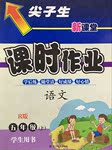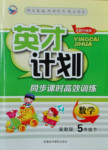题目内容
5.假定英语课上老师要求同桌之间交换修改作文,请你修改你同桌写的以下作文.文中共有10处语言错误,每句中最多有两处,每处错误仅涉及一个单词的增加、删除或修改.增加:在缺词处加一个漏字符号(∧),并在其下面写出该加的词.
删除:把多余的词用斜线(划掉.
修改:在错的词下划一横线,并在该词下面写出修改后的词.
注意:1.每处错误及其修改均仅限一词;
2.只允许修改10处,多者(从第11处起)不计分.
One day,I went to a store to buy the shirt.The salesgirl took out some shirts for me to choose.I had no idea which one must suit me.At last,I made up my minds to buy an expensive one,thought it might go well with my new trousers.On my way home,I was very exciting.However,when I got up the next day,tried the shirt and looked at me in the mirror,my excitement was gone away.I found it was not so nice to look at home than it was in the store.Knowing that I couldn't possible change it,I thought I had better put it away and use it in the future.
分析 本文主要讲述作者去商店购买衬衫的故事.当女售货员拿出几件衬衫供作者挑选时,不知哪一件合适,最后,作者选了一件贵的,认为与新裤子相配.第二天早上起床,试穿衬衫一照镜子,发现并不如商店里那么好.作者知道不可能调换了,只好放起来以后再穿.
解答 One day,I went to a store to buy the shirt.The salesgirl took out some shirts for me to choose∧.I had no idea which one must suit me.At last,I made up my minds to buy an expensive one,thought it might go well with my new trousers.On my way home,I was very exciting.However,when I got up the next day,tried the shirt and looked at me in the mirror,my excitement was gone away.I found it was not so nice to look at home than it was in the store.Knowing that I couldn't possible change it,I thought I had better put it away and use it in the future.
详解:
1.the改为a 考查冠词.shirt是可数名词,单数形式前加不定冠词a表示泛指
2.加from 考查介词.choose from表示"从…中挑选",即从几件衬衫中挑选.
3.must改为would 考查情态动词.此处would表示一种可能性,而must表示肯定推测.
4.minds改为mind 考查固定搭配.make up one's mind意为"决定(下定决心)",是固定搭配.
5.thought改为thinking 考查现在分词.I与think之间是主谓关系,此处是-ing分词作伴随状语.
6.exciting改为excited 考查过去分词. 过去分词作表语,多半用来表示人物所处的心理状态或情感变化,其主语多半是人.
7.me改为it 考查代词.it指代文中提到的the shirt.
8.去掉away 考查句意.本句中的gone是形容词,作be动词的表语.go away是动词短语,用在此处不合乎语法.
9.than改为as 考查固定句型.本句是"not so…as…"结构,表示是同级比较,意为"不如…",是固定搭配.
10.possible改为possibly 考查副词.change是动词,需要用副词修饰.
点评 高考短文改错题的形式有说明文,短文故事,书信等,具有很强的实用性.短文的内容和语言都符合高中学生的实际,从表面上看类似一篇学生习作.首先,通读全文,了解短文大意,把握全篇的时态、人称及行文逻辑,在通读全文时把一些容易的错误先改好,再进行逐句改错.其次,要进行逐个句子的改错.这是要对文中的词法、句法和语篇着重分析和特别注意.最后把改好的短文再阅读一遍,检查答案是否正确,感觉是否还有不妥之处,最终形成定稿.

 尖子生新课堂课时作业系列答案
尖子生新课堂课时作业系列答案 英才计划同步课时高效训练系列答案
英才计划同步课时高效训练系列答案| A. | were | B. | had been | ||
| C. | have been | D. | should have been |
-I agree.He's gifted but he's sure to lose case.( )
| A. | a; the | B. | the; the | C. | a; 不填 | D. | the; 不填 |
-________.( )
| A. | Yes,I agree | B. | Yes,you are quite right | ||
| C. | I'm sorry to hear that | D. | I'm feeling sick |
It's(44)D.Just ask them questions about themselves."Many of them like to talk about what they do for a living,"suggests psychologist Tim Ursiny.
Kids can also talk to grown-ups about(45)A.Ask what the last good movie they saw was,because people at dinner parties"(46)B"when the conversation turns to movies,Ursiny says.If a grown-up is(47)CHarry Potter,it's OK to talk about your love for Harry.It's a(n) (48)A topic,one that both grown-ups and kids can enjoy,so(49)Cand talk about whether Dumbledore is really dead.
But(50)Bthe topic of video games."Adults don't want to hear about your video game (51)B they play it,"Ursiny explains.
Adults also don't want to hear slang(俚语).Don't use language they don't (52)C.Ursiny says kids should learn to speak to other people in their own language.(53)Amost adults aren't into slang,they do remember what it was like to be a kid.Ursiny recommends asking adults what(54)B was like when they were your age."It might be a fun discussion if you (55)Byour 10th-grade experience with theirs."(56)Ayou chat with your parents in advance to find out which topics are off-limits (禁区).
Also,don't chat about the things that make your parents feel guilty.Don't mention (57)Cstuff such as how Dad has been sleeping on the couch,Ursiny says.And don't complain that Mom has been late preparing breakfast.
(58)B,Ursiny says,kids should try to put themselves in their parents'(59)A.Learning how to(60)Dthat type of understanding might help you out in the future."The most successful people can develop a sympathetic feeling for others,"he says.
| 41.A.exact | B.serious | C.unfortunate | D.wrong |
| 42.A.everything | B.something | C.anything | D.nothing |
| 43.A.how | B.whatever | C.why | D.when |
| 44.A.important | B.interesting | C.hard | D.easy |
| 45.A.movies | B.meals | C.parties | D.hobbies |
| 46.A.look up | B.light up | C.make up | D.keep up |
| 47.A.in | B.on | C.into | D.onto |
| 48.A.safe | B.special | C.helpful | D.general |
| 49.A.hold out | B.walk out | C.go ahead | D.turn around |
| 50.A.neglect | B.avoid | C.prevent | D.ignore |
| 51.A.when | B.unless | C.but | D.because |
| 52.A.believe | B.accept | C.understand | D.agree |
| 53.A.While | B.As | C.If | D.Since |
| 54.A.family | B.school | C.society | D.nature |
| 55.A.show | B.compare | C.balance | D.match |
| 56.A.Make sure | B.Pay attention | C.Watch out | D.Take care |
| 57.A.incredible | B.terrible | C.embarrassing | D.personal |
| 58.A.However | B.Instead | C.Therefore | D.Yet |
| 59.A.shoes | B.clothes | C.condition | D.location |
| 60.A.produce | B.shape | C.raise | D.develop |